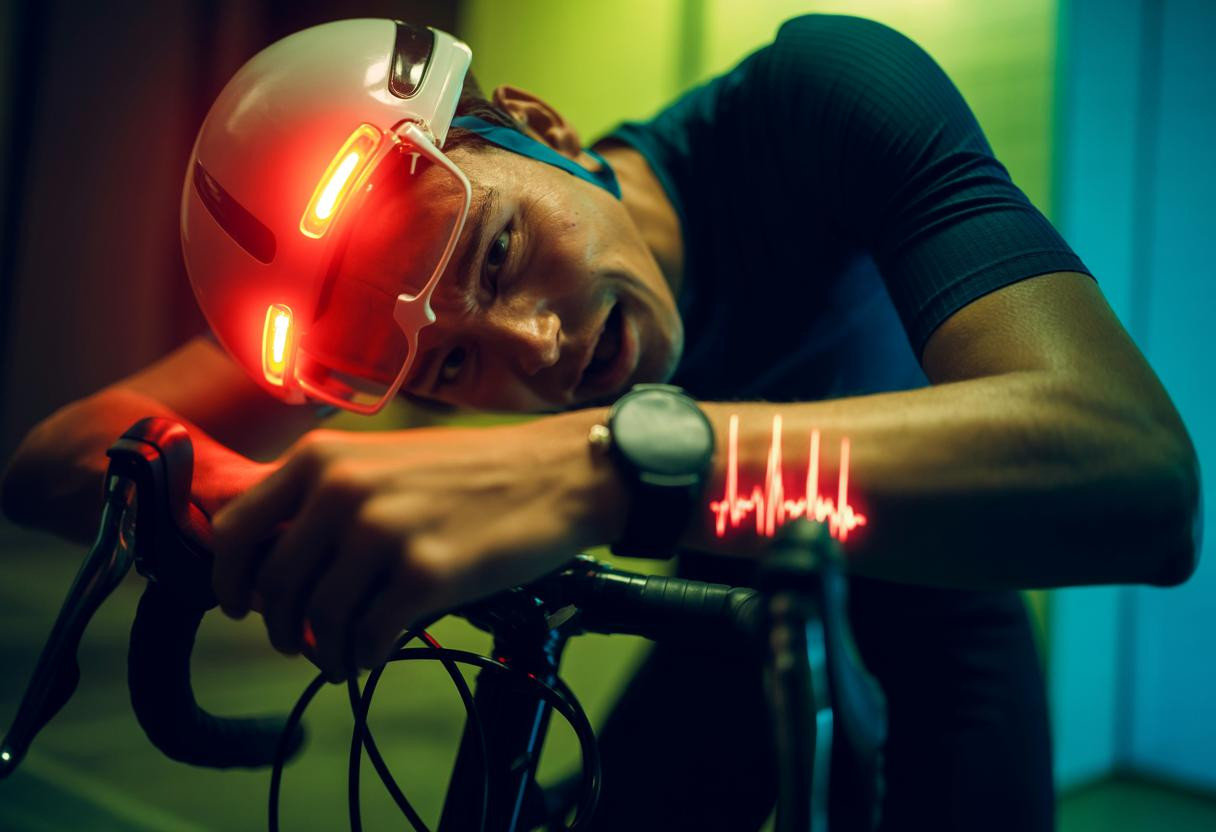Most cyclists obsess over training intensity and nutrition timing, yet researchers have discovered that inadequate sleep quality represents the most overlooked performance barrier affecting heart rate recovery. While exact statistics vary across studies, evidence consistently shows that the majority of recreational and competitive cyclists fail to prioritize sleep optimization, directly sabotaging their cardiovascular recovery capacity and long-term performance gains.
The hidden connection between sleep and recovery
Recent exercise physiology research reveals that sleep restriction of just 3 hours between training sessions can reduce cycling power output by up to 7% in both sprint efforts and endurance time trials. This performance decline stems from impaired autonomic nervous system function, specifically reduced parasympathetic activity that’s essential for effective heart rate recovery.
Professional cyclists typically sleep 9-11 hours nightly, approximately one hour more than the general population, yet amateur cyclists often neglect this critical recovery component. Studies using advanced monitoring technology demonstrate that inadequate sleep creates a cascade of physiological disruptions affecting cardiovascular efficiency and metabolic recovery.
The relationship between sleep and heart rate recovery involves complex neurohormonal mechanisms that most athletes completely underestimate in their training protocols.
How sleep deprivation sabotages your cardiovascular system
Autonomic nervous system disruption
Sleep restriction fundamentally alters your body’s ability to activate parasympathetic recovery responses. Research shows that sleep-deprived cyclists experience delayed heart rate recovery following intense efforts, with some studies documenting recovery times extending 20-30% longer than well-rested athletes.
This occurs because inadequate sleep suppresses vagal tone, the parasympathetic mechanism responsible for rapid heart rate normalization. Modern wearable technology, including devices that track heart rate variability, can detect these autonomic imbalances before they manifest as performance decrements.
Metabolic and hormonal consequences
Poor sleep quality elevates cortisol levels while suppressing growth hormone release, creating a perfect storm for impaired recovery. Cyclists experiencing chronic sleep debt show elevated resting heart rates, reduced stroke volume efficiency, and increased lactate accumulation during submaximal efforts.
Understanding cortisol’s impact on cardiovascular recovery becomes crucial when optimizing training adaptations and preventing overreaching syndromes that plague many dedicated cyclists.
Evidence-based strategies for sleep optimization
The most effective intervention involves extending nightly sleep duration to 10+ hours during intensive training phases, similar to protocols used by Stanford University researchers with elite athletes. This approach consistently produces measurable improvements in power output, reaction times, and subjective energy levels.
Circadian rhythm regulation proves equally important. Athletes who incorporate sunrise running improved sleep quality by 27% demonstrate superior sleep architecture and enhanced recovery metrics compared to those training at inconsistent times.
Technology integration offers additional advantages. Modern sleep tracking devices provide objective feedback on sleep stages, allowing cyclists to correlate sleep quality with next-day performance metrics and adjust protocols accordingly.
Implementing recovery-focused sleep protocols
Environmental optimization
Create a sleep sanctuary with blackout curtains, temperature control between 65-68°F, and elimination of electronic devices 90 minutes before bedtime. Professional cyclists often use white noise machines and specialized mattresses designed for athletic recovery.
Nutritional timing strategies
Avoid caffeine consumption within 8 hours of bedtime and consider natural recovery aids. Some athletes report significant benefits from magnesium supplementation for enhanced recovery, particularly when combined with proper sleep hygiene practices.
Recovery integration
Combine sleep optimization with complementary recovery modalities. Research indicates that athletes using cold shower recovery protocols that reduced recovery time by 47% show enhanced sleep quality when properly timed.
Transforming your cycling performance through sleep
The evidence overwhelmingly demonstrates that sleep quality directly determines cardiovascular recovery capacity and subsequent training adaptations. Cyclists who prioritize sleep optimization alongside traditional training methods consistently outperform those focusing solely on workout intensity and volume. Your next performance breakthrough might not require harder training—it might simply require better sleep.
